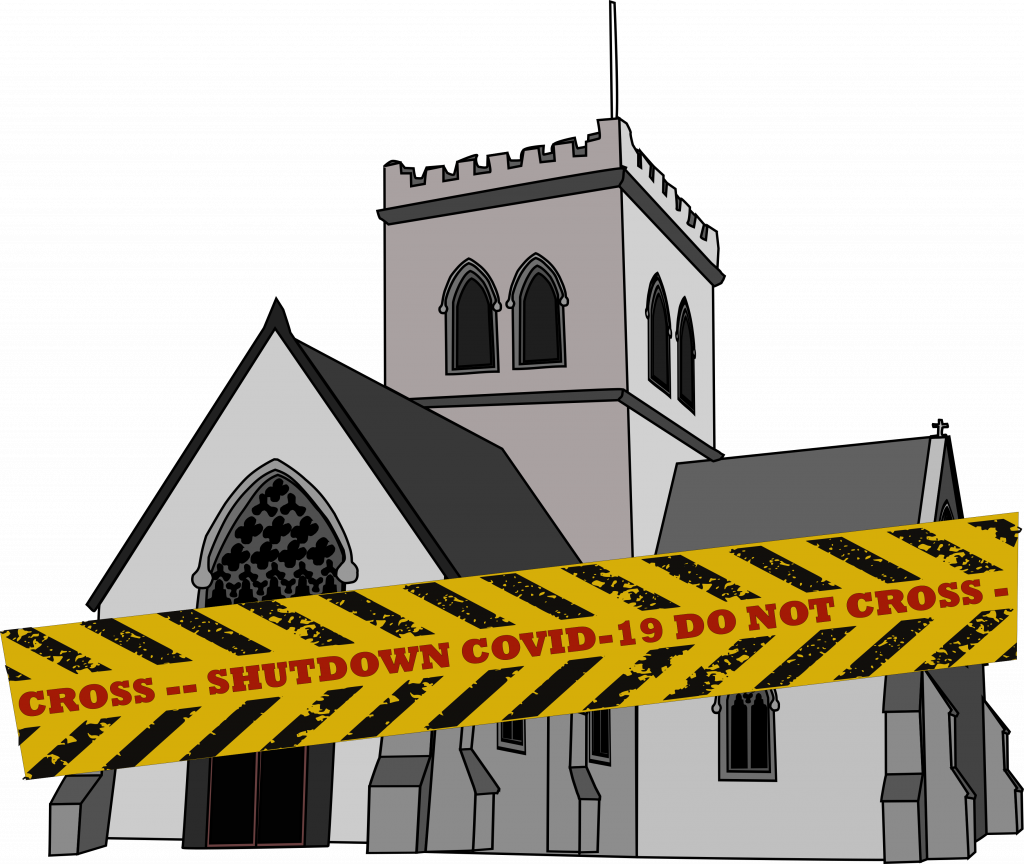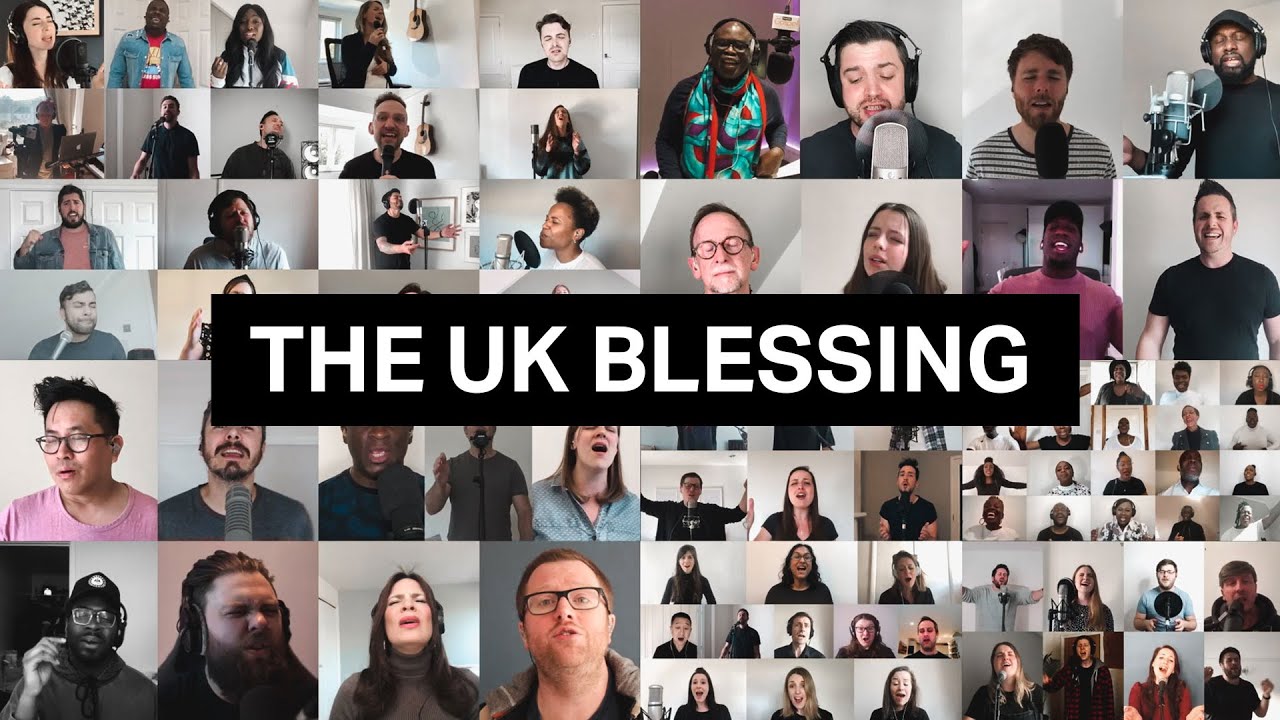Lockdown #2 and the Identity Crisis of the Church
 In the first lockdown of 2020 churches were prevented, by law, from opening. In my own denomination the restrictions went even further: private prayer was not allowed, funerals were not allowed, and I, the vicar, couldn’t even mow the lawn. There was some sense to it; we didn’t know much about the virus and we all wanted to do our bit to protect the vulnerable.
In the first lockdown of 2020 churches were prevented, by law, from opening. In my own denomination the restrictions went even further: private prayer was not allowed, funerals were not allowed, and I, the vicar, couldn’t even mow the lawn. There was some sense to it; we didn’t know much about the virus and we all wanted to do our bit to protect the vulnerable.
It was, at the very least, inconvenient. Then the pain of it began to emerge, especially for those for whom physical sacrament and physical fellowship is an essential part of comfort and faith. Most of us took on board that pain and sought to use the season as a time of refining and realigning. Here was an imposed fast, a slowing down, a solitude. There was blessing in it. If nothing else, it taught us how to go online!
But now we have the second lockdown. It’s different from the first. The approach is now more targetted, firstly by region, and now by activity. Schools are not closed. Some businesses are not closed. But church buildings, once again, are closed for public worship, even the facemasked, distanced, non-singing, non-hugging, non-chatting sort of public worship that we’ve been exercising and enforcing over the last few months. Private prayer is allowed. Broadcast of worship is allowed. Foodbanks and other ill-defined services of help are allowed.
The mood in the wider community is different this time. The main difference is the inconsistency of the response. We were all in it together in March and April. But now we know that the rules don’t apply if you’re powerful and have family in Durham. The rules don’t apply in the North until the South gets impacted. You’re allowed to have a working lunch with a colleague, but you can’t share a pint a few hours later. You can pay a housecleaner to come in to your home for hours at a time, but if you meet your grandkids in the park for a few minutes you’re breaking the law. There is anger now. Some of it is unhelpfully absolute (“The pandemic is a lie!”) but most of it is about weariness, confusion, and injustice.
So what is the church to do? In comparison, for my own church context, this second lockdown isn’t terribly inconvenient. It does affect some more than others, of course, and we’re doing what we can. Once again, if we have a mind to it, we can roll with the pain and the frustration and let it refine us. Who are we? What are we missing in this moment? How does this reveal what we are longing and yearning for in the Kingdom of God? We can share in the pain of the wider community and get clarity about our sense of hope. That sounds like the stuff of advent to me!
It’s not our place simply to reflect the popular mood. If there is anger in the community, might it be that our task is to seek peace? I certainly don’t think that the American-style bandwagon of #letusworship protests are in any way helpful to the gospel. Neither, in this moment, are acts of eucharistic civil-disobedience. Special pleading for churches to open is rightly met with incredulity; why should we get to operate our religious business when the gym owner can’t, why should we get to meet with our friends on a Sunday morning when the local football team can’t?
At this point we reach the crux of the issue. Who are we, that we should be allowed to meet? That’s a non-rhetorical question, it needs to be answered: Who do we think we are?
In one of my former churches a local public relations company generously offered the church some pro-bono work. The analysis they did was helpful and insightful. But what struck me was this: They approached it in terms of “marketplace.” In their framework church is a leisure activity. We are competitors seeking a share in the market of people’s free-time and discretionary-spend. For a theologically pretentious person such as myself, this is a confronting thought, because there is some truth to it. For the vast majority of people there is work time, family time, and leisure time. Church fits into the last category, with some overlap into the second. There is some good to that; we are a place where people can be and receive and be fed and not have to perform. If we do it well, we have a positive effect on wellbeing; we strengthen families and can provide relational, emotional, and practical first-aid when times of stress come along. But, of course, a football club, or a hiking group, or a bunch-of-old-schoolmates-who-catch-up-on-a-Tuesday-afternoon can do that as well, maybe even better. Church is not just a leisure activity. If we were, then we should, rightly, and consistently, be closed up with the rest of those groups right now.
Are we anything else? To some extent, we’re also a business activity. We employ people. Much of what we do is charitable works (more on that in a minute), but we’re also content producers, pastoral carers, cleaners, support staff, and so on. We’ve already had to work this one through when there were restrictions on “socialising”: Is the vicar having a cup of tea with Mrs. Jones socialising or working? It is work, the exercise of a profession. (It’s also socialising, but let’s not complicate things for Mrs. Jones.) Moreover, there is a religious industry, and, if I were to be cynical, there may be some churches who are only pushing to open because the plate hasn’t been passed and the bottom line is hurting. But, of course, church is not just a business activity. If we were, then we should, rightly, and consistently, be closed up with the other businesses right now, and be hurting right alongside them.
Of course, churches also do good works. We are charitable enterprises that perform a utilitarian service. Who was it that recently tweeted that we have become the “church of good” more than the “church of God”? We run foodbanks, and support groups, and mental health services, and so on. We can argue, therefore, that the church provides essential services. Indeed, this is recognised; these clearly definable essential services have been allowed to continue. But is that really who we are? Such services often run out of churches because we have a philanthropic volunteer base, perhaps a higher degree of altruism. But a foodbank could be run by any group of well meaning group of civic-minded folk. The church is not just a provider of essential utility. Where we are seen to be such, we are rightly, and consistently, allowed to keep operating.
What we are running into is a different sense of what is essential. And that raises the question of: Who are we? What is our essence? There can be no escaping it; we are a worshipping community. We are theologically defined in our very soul. We are students of Jesus. We believe he died, rose, and is with us by his Spirit. We devote ourselves to him through private and corporate rhythm and ritual. We seek his Kingdom Come, which is more than just the doing of good, but the pursuit of a fulsome transformation of community, society, and individual lives… for his glory.
We don’t bother with church just because we’re fond of the people there and because we get a sense of being fed and fulfilled; we are not just a leisure activity.
We don’t bother with church just because we’ve got a job to do, or a duty to perform; we are not just a business activity.
We don’t bother with church just because it can do some good in the world, and fill a gap in the social fabric; we are not just an essential utility.
No, we bother with church because God is bothered with us. And he calls us to devote our whole lives, our careers, our families, our passions, our dreams, our finances, and our time, to the pursuit of his kingdom…. together. We are the body of Christ. And it is Christ who is our core, our essence, our reason to exist.
So the restrictions on public worship are not just an inconvenience for us. They brush up against the existential depths of our very selves.
The lockdown is easier for some traditions than others. For some it is impossible to detach the physicality of this essence, e.g. the eucharistic presence for our Anglo-Catholic brothers and sisters, the raising of voices together in praise and worship for our Charismatic friends. For others, worship and fellowship is more cerebral and oral and aural; we can express it with some adequacy in an online setting. For myself, I think we can weather the lockdown in this current moment, at least for a short time. But, in essence, I agree with those who are starting to push back at the government: To be who we are we need to worship. We don’t need the building, but we do need to meet. It is not some “essential service”, it is simply essential to what it means to be who we are. We don’t want to lose ourselves. If this season goes on too long I will add my voice to those who are saying “We can do this safely, let us worship together.”
But in the meantime there is a provocation for us. We are being made to confront ourselves. I wonder how many Christians are actually agreeing with the government. I don’t mean about the policy decision, but about the miscomprehension of what it means to be a Christian community. Is church, to us, just a leisure activity, a practical pursuit, an altruistic provision? Is that what gets us out of bed on a Sunday morning when covid isn’t around? If so, then we really really need the lesson of this moment. If so, then we have just become a hollow shell, confused about whose we are and what we actually care about.
The Archbishops’ are right, let’s make this lockdown a time of prayer. Let’s make it a time of re-devotion to the Lord. Perhaps we’ll find ourselves.





